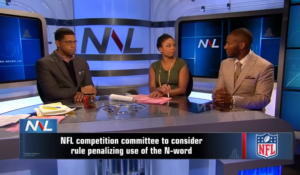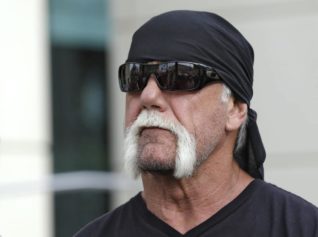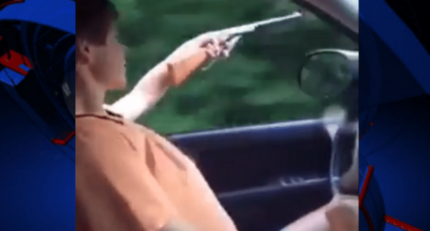
So has one of the most demeaning racial slurs in American history been granted asylum deep within the impenetrable walls of today’s chart-topping hip hop records, the daily vernacular of today’s most popular celebrities and the student-filled halls of nearly every educational institution in the country? That question is tackled in a recent Washington Post investigation of the word.
On Twitter, a social media platform where more than 30 percent of its users are between the ages of 18 and 31, the N-word is used more than 500,000 times every day, according to social media analytics site Topsy.com.
Many times the word is not intended to be demeaning and has been compared to words like “bro” and “dude” as far as the way it is used within pop culture, hip hop culture and youth culture overall.
“Kids today lack the historical perspective,” said Michael Nesmith, a head football coach in the Maryland suburbs of Washington, to the Washington Post. “That, plus its use in hip-hop, is why it’s so prevalent. They’re desensitized to it. I hear kids using it all the time – whites to other whites, Latinos to other Latinos…We’re fighting a losing battle.”
According to many 2014 graduating classes all across the country, it is a losing battle indeed.
From Georgia to California, images surfaced of graduating students holding banners that read, “N***a We Made It.” The phrase was made popular after Drake released “We Made it” along with Soulja Boy who chants “n***a we made it” on the song’s chorus.
The influence of a football coach who doesn’t allow his players to use the slur or parents who repeatedly ask their children to erase the word from their vocabulary, don’t seem to hold weight over the likes of Kanye, Jay-Z and Drake.
“It’s such a regular part of my vernacular,” said 34-year-old comedian and actor Tehran Von Ghasri. “I’m a ‘n***a’ addict.”
The word has always been present in the world of comedy and hip hop, but there are signs that the word is reaching deeper into the depths of entertainment and youth culture than ever before.
The word has reared its head in video games and even on Christian rap albums, but the most confusing element of the word’s expansion is the widespread use among people of other races.
Whites, Asians, Latinos and many others have started adopting the word as a term of endearment to one another – the same way many Blacks use the term when speaking to each other.
One white senior at the University of Maryland studying African-American studies admitted he used the word when addressing a white friend of his but also said something always felt strange about it.
“We kind of used the world to each other as a friendly sort of word, like, “‘That’s my n***a,’ “ the student told the Washington Post. “But eventually I became more and more uncomfortable with that…just because I was aware that, as a white person, maybe you shouldn’t use that word, [since] that would make people get the wrong idea.”
White concert-goers who attended shows by Jay-Z and Kanye West remember each of the rappers telling the diverse audience to sing along despite the fact that the N-word was used generously throughout the song.
Janeace Slifka, a 27-year-old white woman, couldn’t get herself to do it.
“I didn’t find myself uncomfortable at all, but I can’t imagine singing along either,” she said. “I wouldn’t even do it in my car, let alone in a crowd of 50,000 people – even if I was being encouraged.”
Unfortunately, cases of people like Slifka and the University of Maryland student are become rarer as youth culture continues to blur the connection between the N-word and its cringe-worthy history.
More importantly, younger generations don’t tend to acknowledge the connection the word has to years of slavery and the institutional racism that still plagues America today.
Many people also tend to argue that there is a stark contrast between using the word with –er at the ending and using the word with –a at the ending.
The late poet Maya Angelou never agreed with the idea that there is a difference between the two words.
“The n-word was created to divest people of their humanity,” she explained during an appearance on the Sundance TV show “Iconoclasts.” “When I see a bottle – [and] it says ‘P-O-I-S-O-N,’ then I know [what it is]. The bottle is nothing, but the content is poison. If I pour that content into Bavarian crystal, it is still poison.”
In an essay on the dailymail.com, white former CNN anchor Piers Morgan makes the case that Black people need to stop using it.
“Far from ‘owning’ these words, seizing back control with the use of them, I believe it merely serves to empower those who wish to deploy them abusively—and encourage them to continue doing so,” Morgan writes. “Your average dim-witted, foul-mouthed bigot—and there are plenty of them as Twitter can attest—thinks: ‘If they use it, why can’t I?’…Teach the youth of today the N-word is so heinous that even to repeat it ironically is to perpetuate its poison. As a white man, I have no right to demand that any black person gives up using the N-word. But as someone who believes passionately in civil rights, I just think it’s the right thing to do.”
Meanwhile, people like former NFL wide receiver Donte Stallworth believe the term has evolved and we should let “pop culture take that word away to the ocean.”
“Let evolution happen,” he said, according to the Washington Post. “Let pop culture take that word to the ocean, and let anyone use it… That word’s not meant for us anymore. ‘N***a’ is a part of pop culture. It’s just a word, but it shouldn’t be chained to us, for lack of a better word. It shouldn’t be a part of who we are.”


